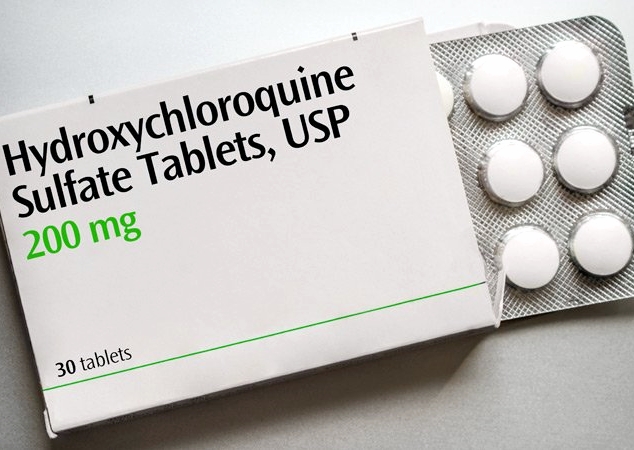
A recent study by Detroit's Henry Ford Health System touting the benefits of the controversial drug hydroxychloroquine seems to be fueling the White House's renewed efforts to get the Food and Drug Administration to reverse course and grant a second emergency authorization for the drug to treat Covid-19.
The Detroit study is widely criticized as flawed.
The Washington Post reports that White House trade advisor Peter Navarro is leading the charge for the drug that Trump said he was taking as a prophylactic for Covid:
But Navarro, an economist known more for his aggressive approach to trade issues and China policy than for his medical credentials, faces serious challenges as he denounces what he calls “media-induced hydroxy hysteria.”
Scientists have widely criticized the new study, by Detroit’s Henry Ford Health System, as flawed. In addition, just weeks ago the FDA revoked its emergency authorization for hydroxychloroquine after major studies found the medication wasn’t effective for covid-19. And the unexpected revival of a politically fraught issue comes as FDA Commissioner Stephen M. Hahn tries to shake off criticism he sometimes seems overly deferential to Trump.
After the Detroit study, Trump tweeted:
The highly respected Henry Ford Health System just reported, based on a large sampling, that HYDROXYCHLOROQUINE cut the death rate in certain sick patients very significantly. The Dems disparaged it for political reasons (me!). Disgraceful. Act now @US_FDA
But media outlets, including Detroit Metro Times, subsequently reported that the study raises serious questions:
The study that Henry Ford publicized last week ... was not randomized and double-blind, meaning that Henry Ford's doctors carefully selected who they gave the drugs to, causing some scientists to warn that it could have skewed the results.
Some of the patients in the study were also treated with a steroid called dexamethasone, which could have additionally impacted the findings. And Henry Ford excluded patients who had not yet been discharged from the hospital from its report — 10% of the study's subjects — which could have skewed the results further.
"There's a little bit of loosey-goosiness here in all this," Eli Rosenberg, an associate professor of epidemiology at the University at Albany School of Public Health, told CNN of the Henry Ford study.
“A reversal [on hydroxychloroquine] would be widely seen as bending to the political will of the White House, and the hit to Dr. Hahn’s credibility would be profound,” said Steven Joffe, a medical ethicist at the University of Pennsylvania, told the Washington Post.
In releasing the study, Henry Ford said the drug cut the death rate significantly in sick patients hospitalized with Covid -- and without heart-related side-effects.
There have been a number of studies that concluded that the drug has no benefit in treating Covid, and has potentially dangerous side effects.











